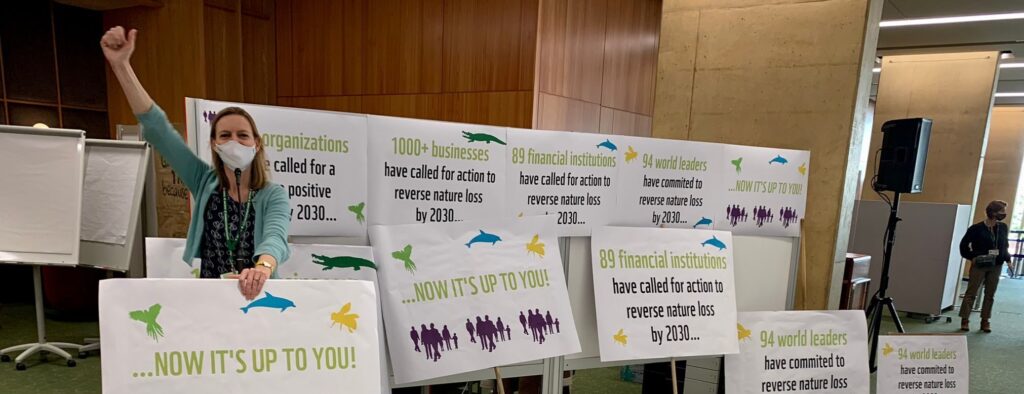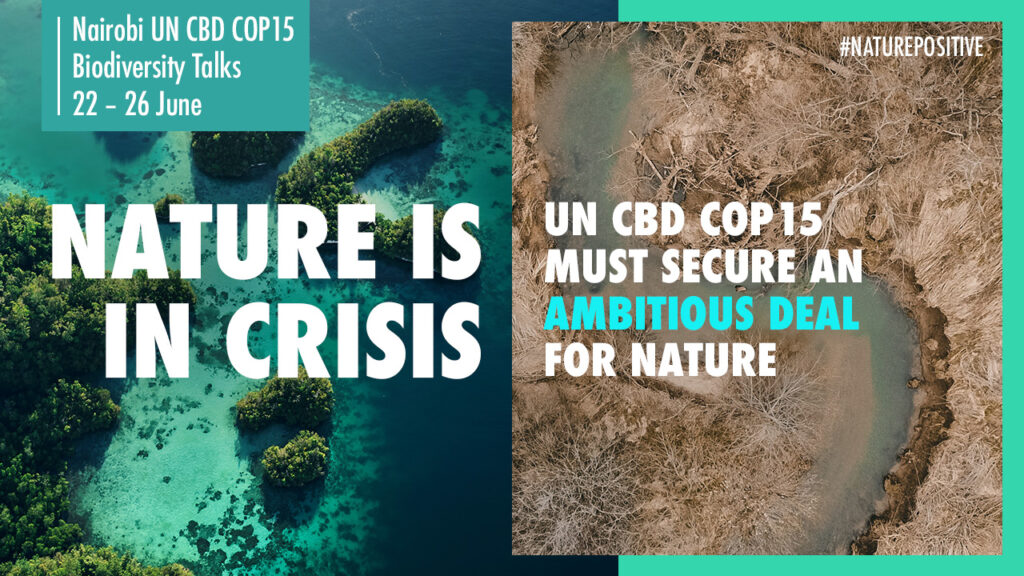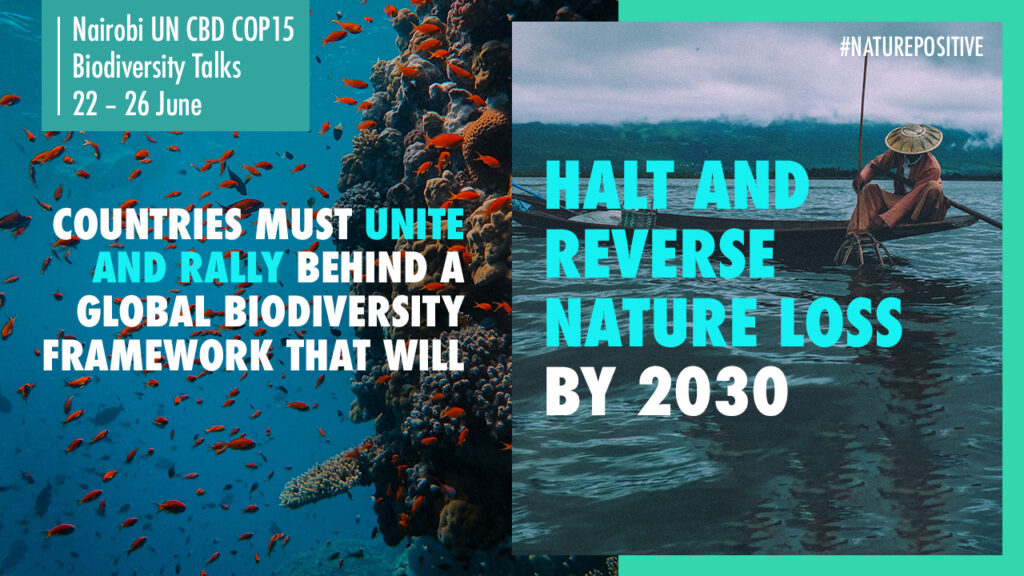Crunch time in Nairobi: a lifetime opportunity to reverse damage to nature

On the ground with the BirdLife Partnership's policy team, Amy McDougall (BirdLife’s Global Biodiversity Policy Coordinator) explains how we’re influencing the CBD meeting in Kenya and why it is so important. It’s time to build consensus and thrash out a framework to save nature.
From tomorrow (21-26 June), negotiators from around the world will convene in Nairobi, Kenya to work through the latest draft of the Post-2020 Global Biodiversity Framework – a global plan to protect and restore biodiversity as part of the Convention on Biological Diversity (CBD). The final framework is expected to be adopted by the world’s governments at the upcoming UN biodiversity conference, COP15 (Conference of Parties), later this year. This meeting follows the Geneva meeting in March, which was criticised for its slow progress.
Despite uncertainty around the timing of COP15, the urgency to tackle the biodiversity crisis is ever present. We cannot afford any further delays in moving towards the completion of the global biodiversity framework and adoption at COP. It is critical that negotiators in Kenya show leadership and are prepared to negotiate, with a mandate to make the big decisions and to show their commitment to reaching agreement. Otherwise, we risk the process being derailed, resulting in an ambitionless framework that is insufficient if we are to halt and reverse biodiversity loss for a nature positive future.
“The global community has a lifetime opportunity to craft an ambitious framework that will reverse damage to nature. The future of humanity is inextricably linked to that of nature, so, governments must take bold action towards nature positivity by 2030.” – Ken Mwathe, Policy & Communications Coordinator, BirdLife Africa
There are some major hurdles to overcome with mistrust among the Parties threatening to undermine the negotiation of an ambitious, transformative framework. The first hurdle concerns ‘resource mobilisation’: whether there is enough money and technical support being made available to deliver on the ambition. The second concerns the complexity that is ‘digital sequence information’ (DSI), at the heart of which is securing benefits from the use of genetic resources. For these two areas, an African group of negotiators are in the driving seat and hold significant influence over the outcome.
African vision
This African group includes three of the world’s mega-biodiverse nations (South Africa, the Democratic Republic of Congo, and Madagascar). Collectively, African countries have a significant stake in the outcomes, representing a continent vulnerable to climate change, a multitude of developing economies, and the youngest population in the world including over 50 million Indigenous People, many of whom rely directly on biodiversity for their livelihoods. The African group will come to the talks ready to be ambitious, though steeled for a difficult negotiation. Without signals on significant resourcing coming to the table from donor countries and through other mechanisms to support these countries in implementing the post-2020 global biodiversity framework, it is highly unlikely agreement will be reached.
“The world leaders have been excellent in planning to fail. In 2020, the Aichi Targets were terribly missed. Now the post-2020 global biodiversity framework is on the table, yet world leaders are just talking. Will there be a deal for nature? Time is running out. It’s nearly two months to COP15 and still there are no signs of consensus on the ambition including financial resources. The future is in our hands. At COP15 world leaders have a choice between total collapse of our life support system or a tangent for a better future.” – Dr Paul Matiku, Director, NatureKenya
BirdLife’s demands
Critical to these negotiations beyond the two thorny issues described above will be ensuring we secure support from Parties for BirdLife’s priorities . In short, these are:
- Ensure that we halt species extinctions and reduce extinction risk;
- Safeguard, buffer and connect our remaining intact ecosystems and key areas for biodiversity
- Restore degraded ecosystems
- Ensure that protected areas are managed effectively and equitably
- The framework must tackle climate change and support sustainable development through nature-based solutions
- Intensive and unsustainable land and sea use must be addressed
- Harmful subsidies must be redirected
- Finance must be secured to close the biodiversity financing gap
This must all be complemented by a robust monitoring framework and implementation process and be underpinned by a rights-based approach.
Role of the Partnership
The BirdLife International Partnership will be on the ground in Nairobi supported by a team following online and in the wings. In Nairobi, we will be working alongside Partner representatives from NatureKenya, the Nigerian Conservation Foundation and the RSPB, with BirdLife South Africa, BirdLife Australia, and Audubon online. This will build on the great work already put in by Partners who have been busily sharing and advocating our positions with their governments and collaborators. Our strength is our diverse knowledge and geographic reach, and governments look to us to advise on many elements across the framework – from species, to rights, to resource mobilisation.
By Amy McDougall, Global Biodiversity Policy Coordinator
“The global community has a lifetime opportunity to craft an ambitious framework that will reverse damage to nature. The future of humanity is inextricably linked to that of nature, so, governments must take bold action towards nature positivity by 2030.”Ken Mwathe, Policy & Communications Coordinator, BirdLife Africa


“The future is in our hands. At COP15 world leaders have a choice between total collapse of our life support system or a tangent for a better future.”Dr Paul Matiku, Director, NatureKenya